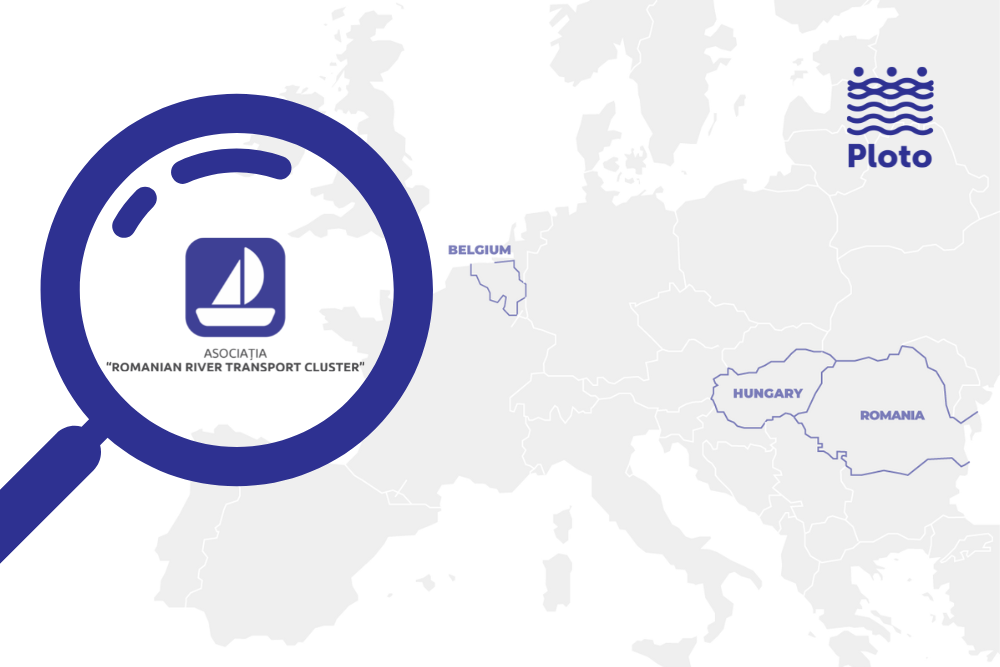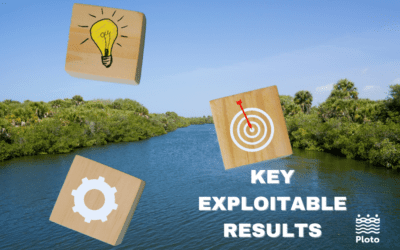In this second episode of the interview series, the Romanian River Transport Cluster (RRT) is sharing its point of view about its experience working on the PLOTO project alongside the Danubius University of Galati (UDG) and the Galati Lower Danube River Administration (AFDJ) in the Romanian pilot site. Here below is what emerged.
What prompted your organisation to join the PLOTO consortium?
RRT CLUSTER was created as an output of GIFT project financed by SEE Transnational Cooperation Programme to facilitate the promotion and the development of river transport industry in Romania and to foster the cooperation with other relevant organisations from the region and beyond the border across the Danube macro region. Joining PLOTO is enabling the opportunity to valorise the RRT’s membership expertise and, at the same time, to explore new business opportunities for our members.
How do the objectives of PLOTO project fit in with the priorities and strategies of your company?
RRT Cluster’s members are stakeholders from the naval transport business as port administrations, port service providers, ship construction industry, naval transport operators, local administrations and other associations from the naval industry as the Romanian Shipbuilders Association (ANCONAV) and last but not least the academic organisation from Galati represented by Lower Danube state University and Danubius private University. PLOTO project is creating the opportunity for RRT to work closely with both the scientific and the private sector in developing new eco-friendly instruments for the inland waterways transport (IWT) stakeholders. The PLOTO project’s results will be used first hand by the RRT members and also disseminated to the RRT membership networks that includes both public and private sector actors active at the European level and abroad (non-EU states: Moldova and Ukraine etc).
Tell us about the role of your company in this project.
RRT role in PLOTO is to gather and share specific data from Galati ports and expertise for the Romanian stakeholders, from both the public and the private sector involved in the IWT management. RRT role is to implement the inventory and to map the situation in the Galati ports as part of the User case A and to facilitate the discussion on the adaptation and mitigation measures in ports and the innovative business solution and exploitation of project results.
Can you give an update about the latest developments?
RRT team focused its efforts in providing relevant data for building the User Case A and data needed in the context of the PLOTO WP2 (End-User requirements and Platform design). The project’s objective and foreseen results were also presented at an international conference held in Bucharest in November 2022 – Black Sea NGO Forum – and a regional conference Afaceri.ro held in Focsani in February in the context of building an international, environmental and business-friendly community that will integrate the results of different development projects.
What are your company’s next steps in the project, in relation to the pilot site?
The RRT team will provide up-to-date information regarding the status of the specific parameters used in the User Case A regarding the Galati ports. The data will be provided by the RRT members due to their expertise and experience in the area. The data provided will contribute to the first design of the User case that will be shared among the RRT stakeholders.
What are your plans to build upon these results for future initiatives?
RRT will build on the PLOTO results by creating new opportunities and by fostering cooperation with other relevant organisations from region and beyond border across Danube macro region.
Would you like to add anything more?
RRT, as a CSO is valuing the opportunity to be a part of an experienced consortium, in its way to a successful endeavour to create an innovative approach that will add value to the IWT sector and its stakeholders.



